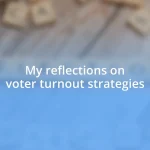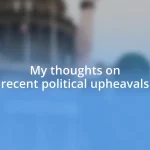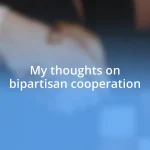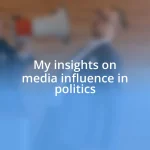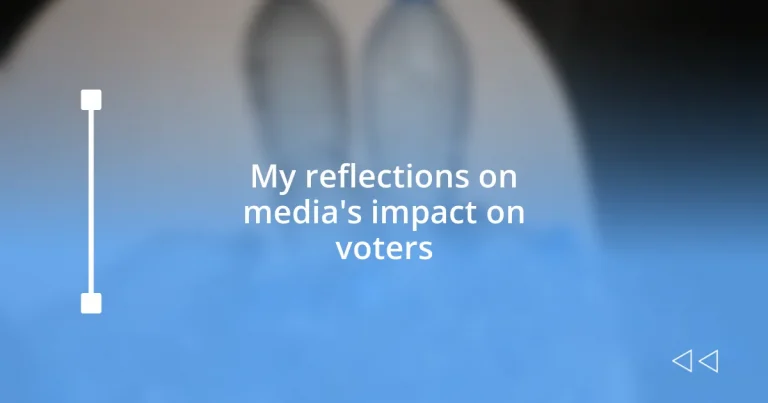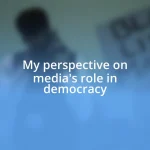Key takeaways:
- Media influences voter perceptions and decisions through narratives that can polarize opinions and shape beliefs, often leading to emotional reactions.
- Misinformation erodes trust in credible sources and complicates communication, making fact-checking essential to prevent the spread of false narratives.
- Diversifying information sources, engaging in discussions, and approaching media with skepticism are crucial strategies for informed voting decisions.
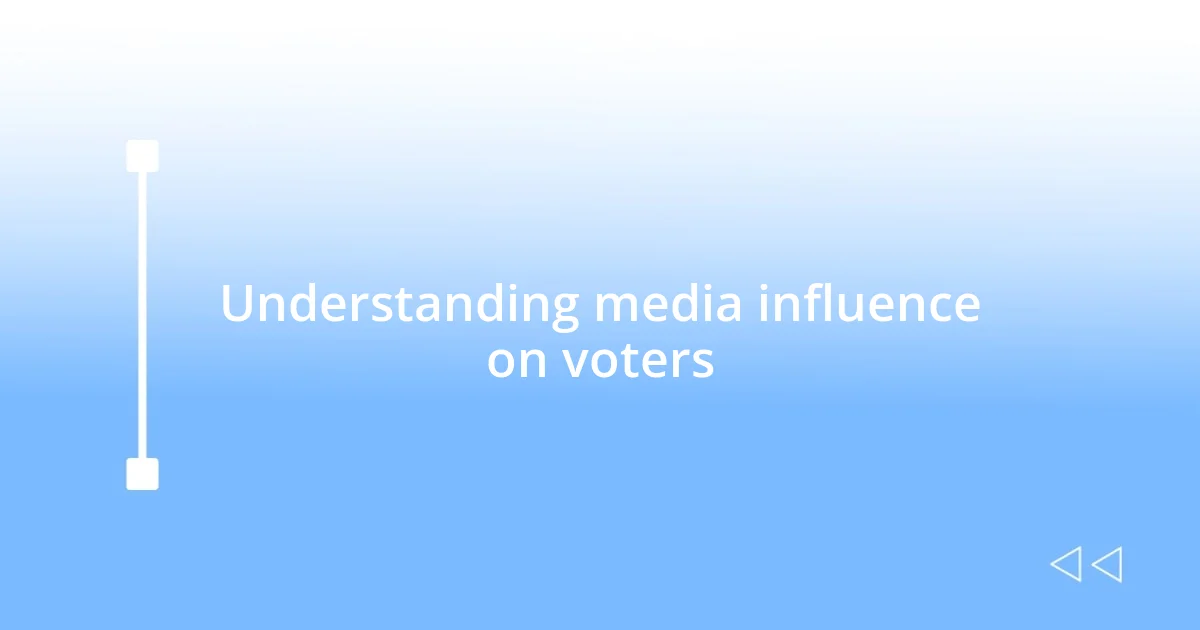
Understanding media influence on voters
Media has an undeniable power over voters, shaping perceptions and guiding decisions. I remember watching the news during a major election cycle and feeling swept away by the narratives presented. It made me wonder: how much of my own viewpoint was crafted by the headlines I read?
From social media feeds to traditional news outlets, the messages voters receive can create a powerful filter through which they view candidates. When I scroll through Facebook or Twitter, I often see friends sharing articles that evoke strong emotions—fear, hope, anger. Have you ever felt your opinion shift after engaging with an article or post?
It’s fascinating how media not only informs but also polarizes public opinion. I’ve experienced moments where a well-crafted soundbite or emotive story could sway my thinking, reflecting how deeply journalism and advertising can connect—or disconnect—us from reality. This begs the question: are we consuming media mindfully, or are we letting it dictate our beliefs?
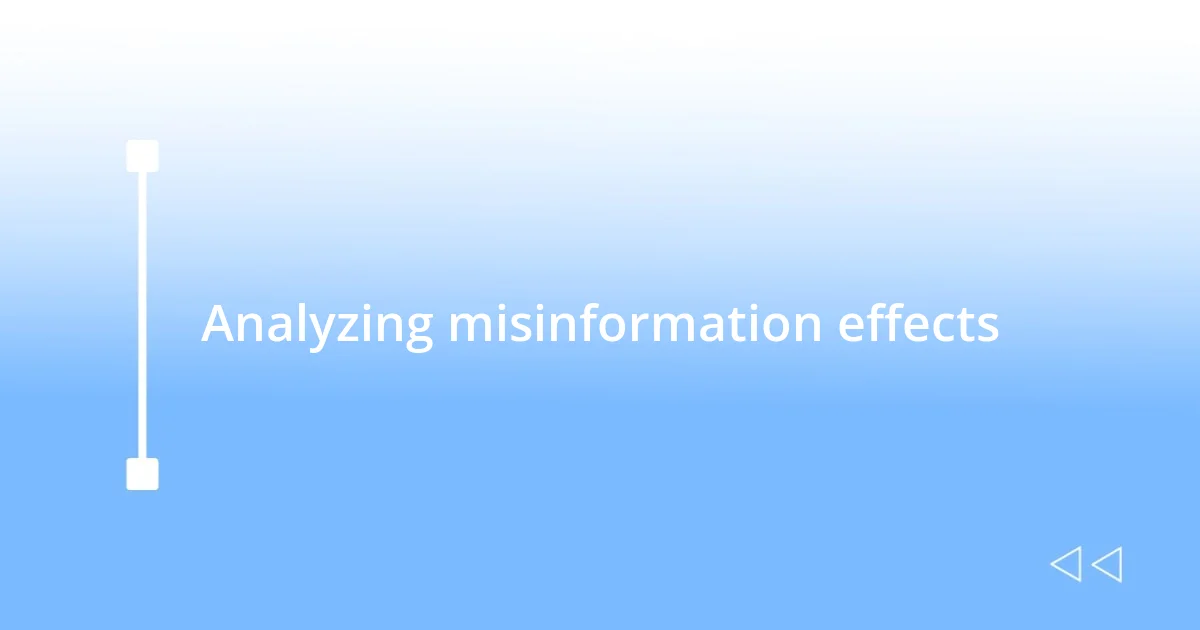
Analyzing misinformation effects
Misinformation can have profound effects on voter perceptions and decisions, often leading to confusion and distrust. I recall a time when a viral post circulated claiming a candidate had said something outrageous. I felt a rush of indignation until I later discovered it was taken completely out of context. This experience highlighted how easily misinformation can slip into the public consciousness, shaping opinions based on incomplete or distorted statements rather than factual information.
- Misinformation can create emotional reactions that drive voter behavior, often based on fear or outrage.
- It erodes trust in credible sources, as voters find it increasingly challenging to discern fact from fiction.
- Fact-checking has become essential, but many people still share misinformation without verifying it first, complicating the communication landscape.
- Social media platforms can amplify false narratives, reaching wider audiences in a matter of hours.
- The impact of misinformation may not just influence a single election cycle but can carry over into long-term voter behavior and beliefs.
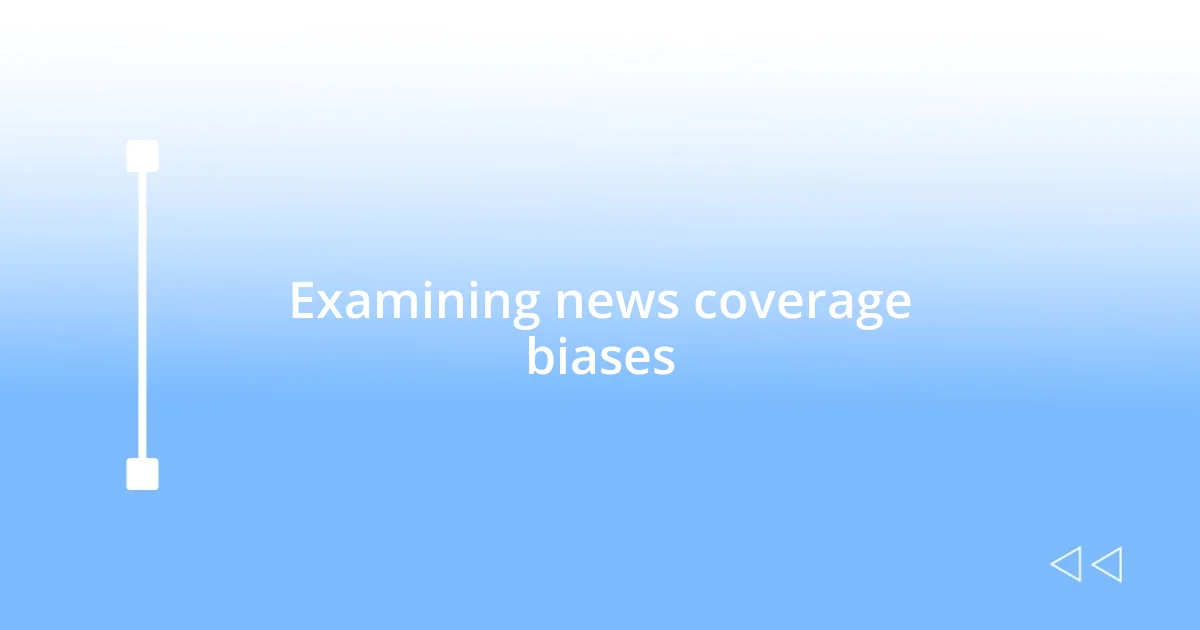
Examining news coverage biases
News coverage biases significantly shape voter perceptions, often leading to skewed understandings of issues and candidates. For instance, I recall a local election where coverage was heavily focused on one candidate’s minor misstep while glossing over their opponent’s major controversies. It made me question how narratives can be constructed and delivered, favoring one side while silencing the other. Have you ever felt that certain stories were given more importance than others? It’s eye-opening how selective reporting can alter the playing field.
Moreover, the language used in reporting can be particularly telling. While watching an election update, I noticed how terms like “reform” versus “overhaul” can evoke different sentiments in voters. This subtle shift in language can reinforce biases, molding opinions and voting behaviors even before we truly understand the policies at stake. Does the choice of words change your perspective as it does mine? It’s astonishing how the same event can be framed in various lights, impacting public perception.
To illustrate these biases, I’ve highlighted key factors that often reflect in news coverage:
| Type of Bias | Example |
|---|---|
| Omission Bias | Ignoring negative reports about favored candidates |
| Framing Bias | Describing a policy as “government overreach” vs. “protective measure” |
| Selection Bias | Choosing to highlight only certain polls that favor one candidate |
Understanding these biases is crucial as they can lead us to form opinions that may not align with reality, influencing how we vote.
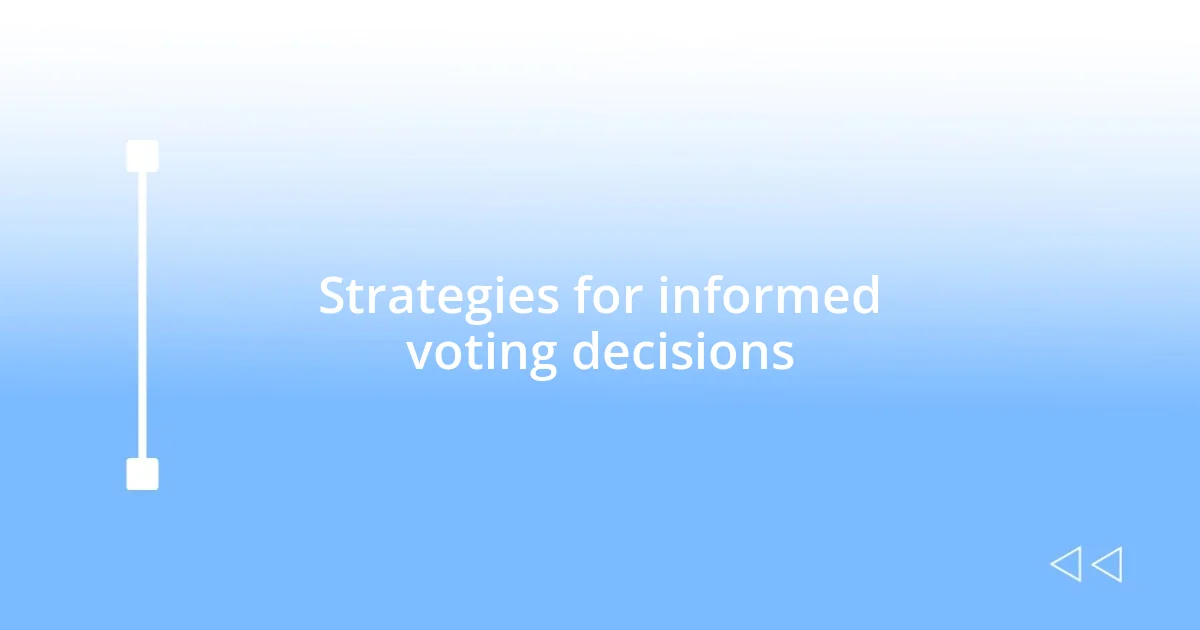
Strategies for informed voting decisions
Another crucial strategy is engaging with fact-checking websites before sharing information on social media. I learned this lesson the hard way after sharing a misleading article that turned out to be false. The embarrassment taught me to pause and verify before hitting that “share” button. It’s a simple step that can help mitigate the spread of misinformation while ensuring that the content we share is accurate. Have you ever paused to check a fact before sharing something? It can make a world of difference in what we contribute to the conversation.
Lastly, discussing issues with family and friends can significantly enrich our decision-making process. I often find that when I talk politics with my peers, it leads to eye-opening debates that challenge my preconceived notions. These discussions allow us to articulate our thoughts and confront any biases we may hold. Have you noticed how valuable it can be to share ideas with others? They often shed light on aspects we hadn’t considered, ultimately helping us become more informed voters.
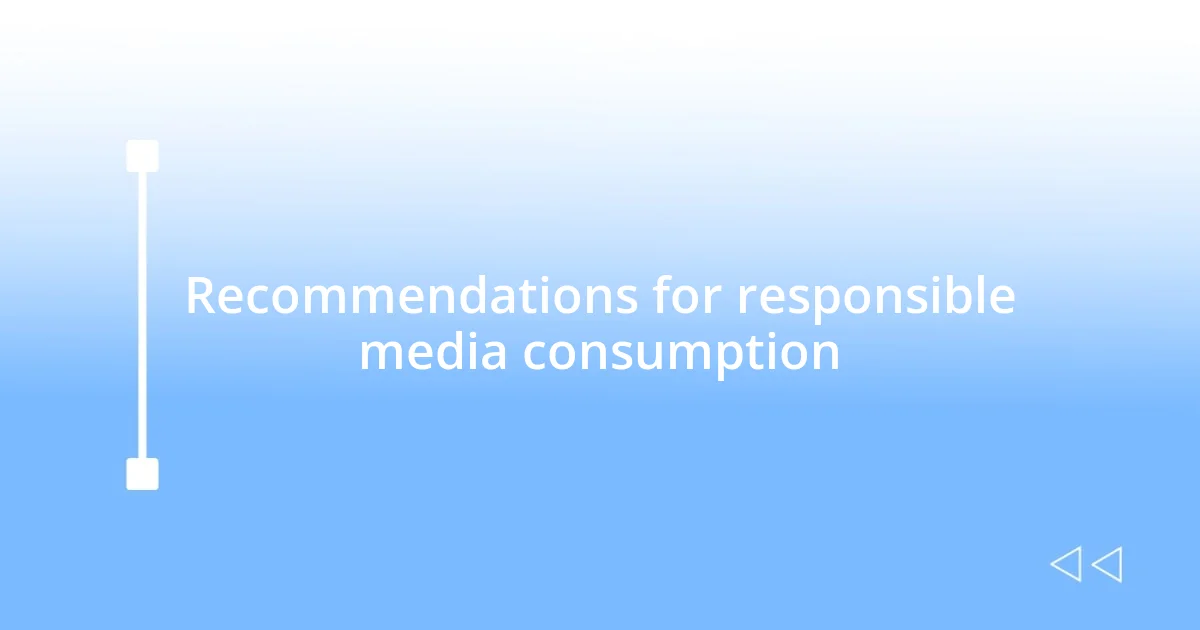
Recommendations for responsible media consumption
One vital recommendation for responsible media consumption is to always approach information with a critical mindset. There was a time when I accepted headlines at face value without questioning their source or intent. However, I learned the hard way that not everything shared online is factual or unbiased. Have you ever felt that rush of surprise when you discovered a ‘breaking news’ story was based on unfounded claims? This experience made me realize that a healthy dose of skepticism can be our best defense against misinformation.
Another important practice is to seek out long-form journalism and in-depth analyses. I vividly remember reading a comprehensive report on a political issue that unfolded over several pages. It offered context, historical background, and multiple viewpoints, which deepened my understanding significantly. Don’t you think there’s something enriching about diving deeper into a topic rather than just skimming the surface? Engaging with more detailed content allows us to form well-rounded opinions rather than being swayed by sensational headlines.
Lastly, participating in community forums or town hall meetings can be incredibly beneficial. I recall attending a local forum where candidates discussed their policies in detail. Hearing directly from them, rather than merely through news commentary, gave me greater clarity about their positions. Have you ever had the opportunity to connect with candidates or officials personally? These interactions can demystify the political process and empower you to make choices based on genuine insights rather than media soundbites.






